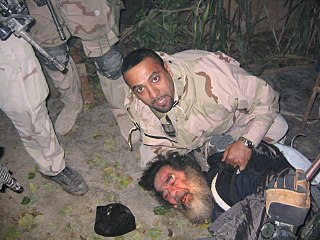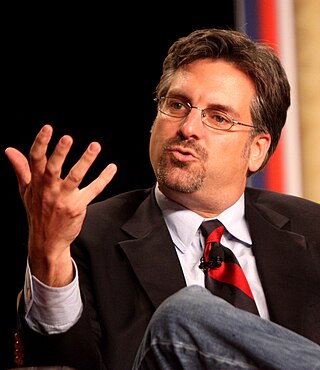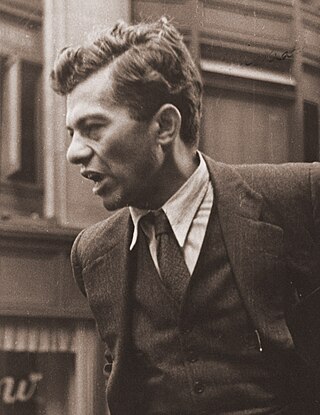Related Research Articles

Saddam Hussein Abd al-Majid al-Tikriti was an Iraqi politician and revolutionary who served as the fifth president of Iraq from 1979 to 2003. He also served as prime minister of Iraq from 1979 to 1991 and later from 1994 to 2003. He was a leading member of the revolutionary Arab Socialist Ba'ath Party, and later, the Baghdad-based Ba'ath Party and its regional organization, the Iraqi Ba'ath Party, which espoused Ba'athism, a mix of Arab nationalism and Arab socialism.

Iraq actively researched and later employed weapons of mass destruction (WMD) from 1962 to 1991, when it destroyed its chemical weapons stockpile and halted its biological and nuclear weapon programs as required by the United Nations Security Council. The fifth president of Iraq, Saddam Hussein, was internationally condemned for his use of chemical weapons during the 1980s campaign against Iranian and Kurdish civilians during and after the Iran–Iraq War. In the 1980s, Saddam pursued an extensive biological weapons program and a nuclear weapons program, though no nuclear bomb was built. After the Gulf War (1990–1991), the United Nations located and destroyed large quantities of Iraqi chemical weapons and related equipment and materials; Iraq ceased its chemical, biological and nuclear programs.

Patrick Oliver Cockburn is a journalist who has been a Middle East correspondent for the Financial Times since 1979 and, from 1990, The Independent. He has also worked as a correspondent in Moscow and Washington and is a frequent contributor to the London Review of Books.
The Alfred I. duPont–Columbia University Award honors excellence in broadcast and digital journalism in the public service and is considered one of the most prestigious awards in journalism. The awards were established in 1942 and administered until 1967 by Washington and Lee University's O. W. Riegel, Curator and Head of the Department of Journalism and Communications. Since 1968 they have been administered by the Columbia University Graduate School of Journalism in New York City, and are considered by some to be the broadcast equivalent of the Pulitzer Prize, another program administered by Columbia University.

Saddam Hussein, the deposed president of Iraq, was captured by the United States military forces in the town of Ad-Dawr, Iraq on 13 December 2003. Codenamed Operation Red Dawn, this military operation was named after the 1984 American film Red Dawn.

Jewish emancipation was the process in various nations in Europe of eliminating Jewish disabilities, e.g. Jewish quotas, to which European Jews were then subject, and the recognition of Jews as entitled to equality and citizenship rights. It included efforts within the community to integrate into their societies as citizens. It occurred gradually between the late 18th century and the early 20th century.

Stephen Forester Hayes is an American journalist and author. In October 2019 Hayes co-founded the online opinion and news publication The Dispatch. Previously, he was a senior writer for National Journal and Editor-in-chief of The Weekly Standard. He was a staunch proponent of the Iraq War and an influential figure in promoting the claim that the Saddam Hussein regime and Al Qaeda had an operational relationship.

Michael Gold was the pen-name of Jewish American writer Itzok Isaac Granich. A lifelong communist, Gold was a novelist and literary critic. His semi-autobiographical novel Jews without Money (1930) was a bestseller. During the 1930s and 1940s, Gold was considered the preeminent author and editor of U.S. proletarian literature.

Richard Engel is an American journalist and author who is the chief foreign correspondent for NBC News. He was assigned to that position on April 18, 2008 after serving as the network's Middle East correspondent and Beirut bureau chief. Before joining NBC in May 2003, Engel reported on the start of the 2003 war in Iraq for ABC News as a freelance journalist in Baghdad.
Men and the City is a 320-page novel by former Iraqi leader Saddam Hussein which was published in 2002. The work was largely autobiographical in nature and describes how Saddam Hussein's grandfather fought the Turks during the Ottoman Empire. It also focuses on the rise of the Ba'ath Party and several of Saddam's relatives including his uncle. It was the third work which Saddam published. The hero of the novel is a character named Saleh but it is widely assumed that the novel is a thinly veiled autobiography of Saddam himself.

Lourdes "Lulu" Garcia-Navarro is an American journalist and an Opinion Audio podcast host for The New York Times. She was the host of National Public Radio's Weekend Edition Sunday from 2017 to 2021, when she left NPR after 17 years at the network. Previously a foreign correspondent, she served as NPR's Jerusalem bureau chief. Her coverage of the Israeli-Palestinian conflict and her vivid dispatches of the Arab Spring uprisings brought Garcia-Navarro wide acclaim and five awards in 2012, including the Edward R. Murrow and Peabody Awards for her coverage of the Libyan revolt. She then moved to Rio de Janeiro, Brazil, covering South America. Her series on the Amazon rainforest was a Peabody finalist and won an Edward R. Murrow award for best news series.
Video journalism or videojournalism is a form of journalism, where the journalist shoots, edits and often presents their own video material.
Alissa Johannsen Rubin is a Pulitzer Prize–winning American journalist, currently serving as the Baghdad Bureau chief for The New York Times. She has spent much of her career covering the wars in Iraq, Afghanistan and the Balkans.

Michael Joseph Schudrich is an American rabbi and the current Chief Rabbi of Poland. He is the oldest of four children of Rabbi David Schudrich and Doris Goldfarb Schudrich.
Ahmad Shawkat was an Iraqi journalist shot to death outside his media office in Mosul, on 28 October 2003, following a series of death threats.
Jewish disabilities were legal restrictions, limitations and obligations placed on European Jews in the Middle Ages. In Europe, the disabilities imposed on Jews included provisions requiring Jews to wear specific and identifying clothing such as the Jewish hat and the yellow badge, paying special taxes, swearing special oaths, living in certain neighbourhoods, and forbidding Jews to enter certain trades. In Sweden, for example, Jews were forbidden to sell new pieces of clothing. Disabilities also included special taxes levied on Jews, exclusion from public life, restraints on the performance of religious ceremonies, and linguistic censorship. Some countries went even further and outright expelled Jews, for example England in 1290 and Spain in 1492.

Michael P. Scharf is co-dean, Joseph C. Hostetler – BakerHostetler professor of law, and the director of the Frederick K. Cox International Law Center at Case Western Reserve University School of Law. Scharf is also co-founder of the Public International Law & Policy Group (PILPG), a non-governmental organization (NGO) which provides pro bono legal assistance to developing states and states in transition. Since 1995 PILPG has provided pro bono legal assistance to states and governments involved in peace negotiations, drafting post-conflict constitutions, and prosecuting war criminals. Since March 2012, Scharf has also been the producer and host of Talking Foreign Policy, a one-hour radio program aired on a quarterly basis on Cleveland’s NPR affiliate WCPN 90.3 ideastream.

Guy Raz is widely considered to be one of the pioneers of podcasting. He’s been instrumental in creating some of the most iconic podcasts in the world including How I Built This, the kids science podcast Wow in the World, and TED Radio Hour. Guy is also the force behind the celebrity interview podcast The Great Creators and the business podcast Wisdom from the Top. The New York Times has described him as “one of the most popular podcasters in history.” Collectively, his shows reach 19 million listeners a month.
In the Arab world, racism targets non-Arabs and the expat majority of the Arab states of the Persian Gulf coming from South Asian groups as well as Black, European, and Asian groups that are Muslim; non-Arab ethnic minorities such as Armenians, Africans, the Saqaliba, Southeast Asians, Jews, Kurds, and Coptic Christians, Assyrians, Persians, Turks, and other Turkic peoples, and South Asians living in Arab countries of the Middle East.

Jews Without Money is a 1930 semi-autobiographical novel by American critic Mike Gold.
References
- ↑ "Michael Goldfarb". Huffpost. Retrieved 2021-11-02.
- ↑ "A journalist laughs at the thought that his layoff anniversary is worth a story, but..." Poynter. September 2010. Retrieved 2018-01-08.
- ↑ "Michael Goldfarb". the Guardian. Retrieved 2018-01-08.
- ↑ NY Times Review: 'Ahmad's War, Ahmad's Peace': One of the Good Guys Retrieved 2011-11-06
- ↑ NY Times Review: Emancipation: How Liberating Europe's Jews From the Ghetto Led to Revolution and Renaissance Retrieved 2021-11-02
- ↑ ReformJudaism.org: Book Review: Emancipation: How Liberating Europe's Jews from the Ghetto Led to Revolution and Renaissance Retrieved 2021-11-02